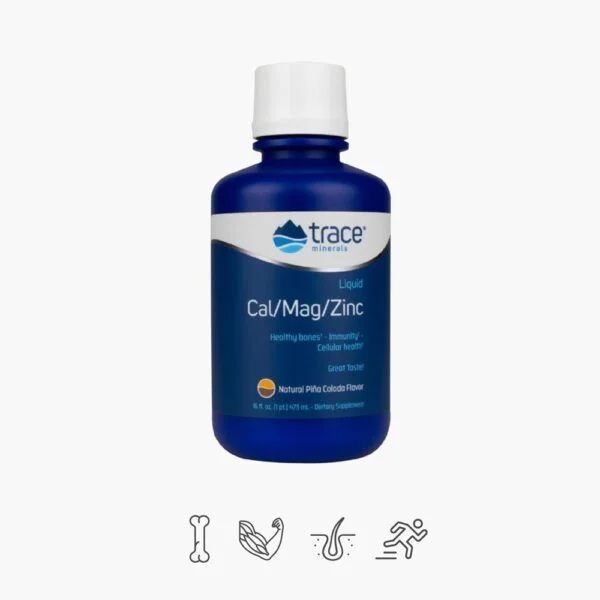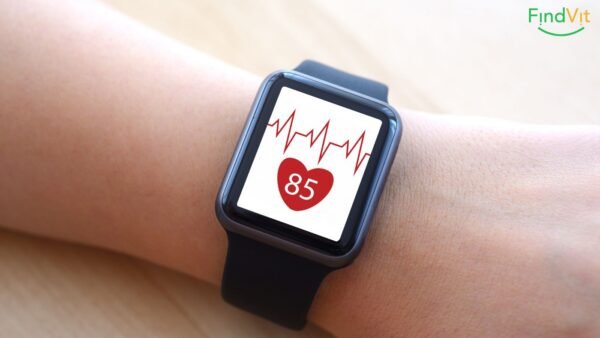Most of us have heard about the importance of calcium since childhood. But do we really understand why calcium is needed? And where is the best place to get it? You can find the answers to all these questions in this article.
Calcium - what is it?
Calcium is a mineral that plays an important role in blood clotting, helps muscles contract, and regulates normal heart rhythm and nerve function. About 99% of the body's % calcium is in the bones, and the remaining 1 % is in the blood, muscles, and other tissues.
Calcium is also an important part of healthy teeth and bones. It makes your bones strong and strong. You might think of your bones as your body's reservoir of calcium. If you don't get enough calcium in your diet, your body takes it from your bones.
Also, if there is too little calcium in the body, there is a risk that you will bleed, because calcium is very important in the blood clotting process. Calcium helps transmit nerve signals from the brain to all parts of the body. Calcium deficiency can also affect the digestive system, as calcium plays an important role in enzyme production. Therefore, calcium is very important to ensure the functioning of the nervous system.
Effect of vitamin D on calcium
Your body needs vitamin D to absorb calcium. This means that it doesn't matter if you eat calcium-rich foods, it will be completely useless if you have low vitamin D. It is also not recommended to take a calcium supplement alone, because then it can deposit on the walls of the veins.
You can get vitamin D from several sources. One of them is food products. Here are some foods that are high in vitamin D:
- Eggs
- Salmon
- Cheese
However, a person can only get about 10-15% (5mg) of the required daily rate with food. Therefore, we cannot get the full rate from food alone. It is possible to take this vitamin in order to prevent you from becoming deficient in it vitamin D supplements.
The sun is the best source of vitamin D. Your skin naturally produces vitamin D when exposed to the sun. People with darker skin do not produce vitamin D as well, so supplements may be needed to prevent a deficiency. Since this vitamin has a great influence on our health, vitamin D deficiency can also be the cause of many diseases.
In order for calcium to be absorbed and strengthen bones, sufficient vitamin D and of vitamin K2 amount in the body.
Calcium deficiency
Calcium deficiency can lead to other health problems. In adults, too little calcium can increase the risk of developing osteoporosis, which is brittle and porous bones that break easily. Older women are more likely to suffer from this disease, so they are recommended to consume even more calcium. Symptoms that indicate you are deficient in calcium:
- decreased appetite
- nosebleeds
- muscle cramps
If calcium deficiency is a constant problem for you, chronic diseases may begin to develop in your body. Joint, muscle and headache pain, diabetes, eczema, angina, insomnia, heart disease, high blood pressure, kidney stones and other diseases can be the consequences of a constant lack of calcium.
Osteoporosis - what is it?
Osteoporosis is a systemic bone disease characterized by low bone mass due to a decrease in bone density, which increases bone fragility and the risk of fractures.
Studies show that half of women do not consume the minimum required amount of calcium every day. 99 percent of this mineral is in our bones, on average calcium makes up about 2% of human body mass, that is about 1.5kg of our body weight. The rest, about 10 grams of calcium, is in our blood, brain and nervous system.
Also, in older women, due to hormonal changes and insufficient calcium levels, bones can often begin to break. This is because calcium deficiency weakens the bones.
The importance of calcium for children
Calcium is essential for children as they grow and develop. Children who don't get enough calcium may not grow to their full height or have other health problems.
Calcium deficiency can cause rickets in children. Bones become soft and weak, and deformities may occur, including bowed legs or a misalignment of the spine. Rickets can also cause bone pain.
Calcium absorption
In order for the body to absorb calcium, you need to take vitamins A and D, magnesium and phosphorus along with it, so that you get all the necessary minerals together.
It is also important to know that your age, the medications you take, the state of the digestive system, and even the time of day are very important for calcium absorption.
Factors such as: smoking, consumption of alcohol, caffeine, various carbonated drinks and unbalanced diet have a negative effect on calcium absorption.
With age, a person absorbs calcium up to 60% less, so it is even more difficult for older people to get the necessary amount of calcium with food. About 20-30% of the required rate is absorbed from calcium-containing foods.
The required amount of calcium
How do you know if you are getting enough calcium? Scientists suggest that adults should get 1,000 mg of calcium daily. For women over 50 years of age, during pregnancy and breastfeeding, it is recommended to consume 1,200 mg per day.
Too much calcium
It is important to get the right amount of minerals or nutrients. Too much calcium can have negative side effects. Symptoms such as gas and bloating may indicate that you are getting too much calcium.
Extra calcium can also increase the risk of kidney stones. In rare cases, too much calcium in the blood can lead to calcium deposits. This is called hypercalcemia.
Calcium in food
Your body doesn't make calcium, so you have to watch your diet to get the calcium you need. You can get calcium from the following products:
- Various dairy products, such as cheese, can contain (depending on the type) about 242mg of calcium;
- Dark green vegetables such as kale, spinach and broccoli;
- White beans. You can get about 244mg of calcium from one serving;
- Sardines. They contain about 85mg of calcium per can
- Bread enriched with grains
- Soy products
- Orange juice

Calcium supplements
Not everyone gets enough calcium from food alone. Food may not always be the best source of calcium. If you're lactose intolerant, vegan, or simply don't like dairy, it can be difficult to get enough calcium from your diet. Therefore, they are used various calcium supplements Calcium supplements are often sold together with magnesium and zinc, so that you get a balanced combination of macronutrients.
-
Trace minerals Calcium Magnesium Zinc and Vitamin D3 in a complex with minerals, 946 ml69,90 €Rated 5.00 out of 5 based on 1 customer rating
Types of supplements
Calcium supplements use several types of calcium compounds. Each compound contains a different amount of calcium, called elemental calcium. Calcium supplements may include:
- Calcium carbonate
- Calcium citrate
- Calcium gluconate
- Calcium lactate
In addition, some calcium supplements are combined with vitamins and other minerals. For example, some calcium supplements may contain vitamin D or magnesium.
To find out what additional nutrients you can get from an oral supplement, check the ingredients list to see what form of calcium your calcium supplement is in and what other nutrients it may contain.
Calcium is a mineral that should not be lacking
Calcium is very important for your overall health. You can get the calcium you need from a variety of foods and, if needed, from supplements. Calcium works together with other nutrients, such as vitamin D, so it is important to have a balanced diet. As with any mineral or nutrient, you should monitor your calcium intake to avoid getting too much or too little.
How find out which vitamins, minerals or other supplements the most appropriate at the moment? Try it free test "Your Day" ! where you will find out needs of the body and you will get personal recommendation!












